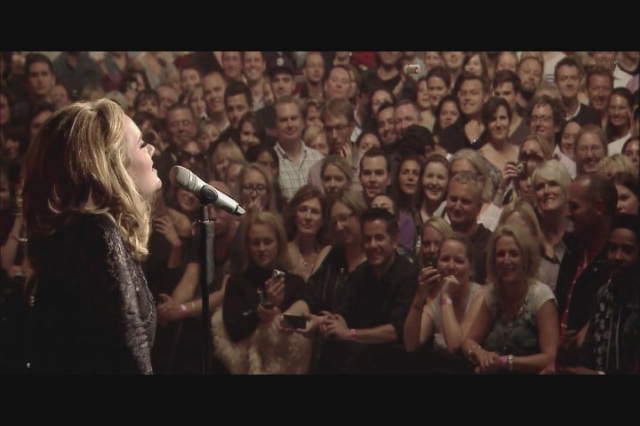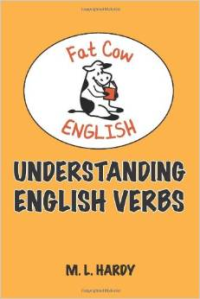First, read Noun Clauses #1 and Noun Clauses #2.
Today, I will continue giving examples of Noun Clauses and explain more structure. We are going to look at a song called Someone Like You by ADELE. It is full of Noun Clauses.
Let’s have a look at the first ten lines of the song. The Noun Clauses are in pink. The Noun Clause Markers are underlined.
1. I heard that you’re settled down,
2. That you found a girl and you’re married now.
3. I heard that your dreams came true.
4. (I)Guess she gave you things I didn’t give to you.
5. Old friend, why are you so shy?
6. *Ain’t like you to hold back or hide from the light. (*Ain’t = It isn’t)
7. I hate to turn up out of the blue uninvited
8. But I couldn’t stay away; I couldn’t fight it.
9. I had hoped you’d see my face and that you’d be reminded
10. That for me it isn’t over.
♥ ♥ ♥ ♥ ♥ ♥ ♥ ♥ ♥ ♥ ♥
Do you remember that a noun is the name of something or someone? A Noun Clause is just a long, multi-word noun. Of course, it’s a long noun with a finite verb, or it would just be a noun phrase!
Like all nouns, Noun Clauses can be replaced with a pronoun. Pronouns are not just: I, you, me, it, they etc. We can say: this song ⇒ this, these songs ⇒ these, that song ⇒ that. Be careful of the word ‘that’. It can be used in many ways. As always, when working out the structure of a sentence, look at how the words are used. In the sentences below, ‘that’ is a Noun Clause Marker in the song, or a pronoun in the sentences I’ve written.
1. I heard that you’re settled down,
= I heard this. OR it. OR that.
2. (I heard) That you found a girl and (that) you’re married now.
= (I heard) this / it / that and this / it / that.
3. I heard that your dreams came true.
= I heard this / it / that.
9. I had hoped (that) you’d see my face and that you’d be reminded
= I had hoped this / it / that and this / it / that.
10. that for me it isn’t over.
and this / it / that.
♥ Did you notice that the Noun Clause Marker ‘that‘, is followed by a Clause which is a Sentence? This is true even when it has been omitted. (In lines 2. & 9. I’ve included it in brackets.)
♥ Do you realise that all the Noun Clauses above are examples of Reported Speech?
♥ ♥ ♥ ♥ ♥ ♥ ♥ ♥ ♥ ♥ ♥
Remember the following:
♥ Noun Clauses are always Dependent Clauses.
♥ Noun Clause Markers are Subordinating Conjunctions.
♥♥ THAT ♥♥
♥ The Clause Marker ‘that’ can also be a Relative Clause Marker. In a Relative Clause, ‘that’ is a pronoun and can be replaced by ‘which’ or ‘who’. This is an easy way to check if a Clause is a Relative Clause or a Noun Clause.
4. (I) Guess she gave you things (that) I didn’t give to you. Relative Clause
= (I) Guess she gave you things (which) I didn’t give to you. Relative Clause
The singer that wrote those songs is from England. Relative Clause
= The singer who wrote those songs is from England. Relative Clause
♥ In a Noun Clause, ‘that’ is not a pronoun and cannot be replaced with ‘which’ or ‘who’.
The rumour that Adele is going to retire is not true.
≠ The rumour which Adele is going to retire is not true.
I heard that your dreams came true.
≠ I heard which your dreams came true.
♥ Here is another easy way to check if a Clause is a Relative Clause or a Noun Clause. The Noun Clause Marker ‘that’ is always followed by a Sentence:
(I heard) that you found a girl
> that + Sentence: You found a girl. Noun Clause
(I heard) that your dreams came true
> that + Sentence: Your dreams came true. Noun Clause
♥ The Relative Clause Marker ‘that’ is not followed by a Sentence. Something is missing:
(I) Guess she gave you things (that) I didn’t give to you.
> that + Incomplete Sentence: I didn’t give to you … Relative Clause
The singer who wrote those songs is from England.
> who + Incomplete Sentence: … wrote those songs … Relative Clause
∗ None of the Relative Clause Markers (that, who, which, whom, whose) is followed by a Sentence.
♥ The Noun Clause Marker ‘that‘ cannot follow a preposition:
The audience were delighted by that she sang.> The audience were delighted by what she sang.
> The audience were delighted by how she sang.
They listened attentively to that she said.> They listened attentively to what she said.
♥ The Noun Clause Markers ‘wh…..’ cannot usually follow an adjective:
The audience were delighted what she sang.> The audience were delighted by what she sang.
She was sorry why she had to cancel a concert.> She was sorry that she had to cancel a concert.
♥ Only a few adjectives, for example, ‘sure’ and ‘certain’ can be used with ‘wh…’.
> I’m not sure what she sang first.
> I’m not certain whether Adele sang “Hello” at her last concert.
♥ ♥ ♥ ♥ ♥ ♥ ♥ ♥ ♥ ♥ ♥
These are some of the main things to check when you are studying Noun Clauses. The best way to remember any English grammar is to become involved in reading and listening to it, rather than learning a set of rules. When you read, you see Noun Clauses all the time. You don’t even have to notice them. English is full of patterns. Most languages are, or we wouldn’t be able to learn them! The more you read (and listen to English), the more natural and logical these patterns become.
I am always recommending listening to songs as an enjoyable way to improve your English. Click here to watch a video of the song with English subtitles, or on the picture of Adele above and listen to her sing ‘Someone like You’. Listen a few times and you will remember the Noun Clauses.
There are more examples of songs with Noun Clauses in my posts: Noun Clauses #1, Noun Clauses #2, and A Song with Noun Clauses.
♥ ♥ ♥ ♥ ♥ ♥ ♥ ♥ ♥ ♥ ♥





This is a good lesson idea. My students would love it.
LikeLike
Thank you David for your kind comments. I read your article, •Photos From Inside North Korea Pt.1, and found it very interesting. I’m glad you were able to meet local people and talk to them and then write about your experience.
LikeLike